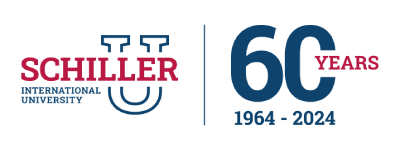The role of diplomacy in international relations is more vital than ever in our interconnected world. Since 1945, the United Nations has facilitated over 1,300 peace agreements, proving diplomacy’s power in resolving conflicts and fostering cooperation (UN Peacemaker).
As conflicts rage and temperatures soar, diplomacy in international relations has never been more important. Global challenges like climate change, cybersecurity, and economic crises are continuing to grow, which is why skilled diplomats are essential in addressing them.
For international students aiming to influence global interactions and eyeing careers in global affairs, understanding these challenges—and seizing opportunities—is key. Read on to explore diplomacy’s role in international relations and how you can succeed in this field.
What is Diplomacy and its Importance in International Relations?
Diplomacy is the practice of negotiating and building relationships between nations to resolve disputes and promote peace. The role of diplomacy in international relations ensures stability in an increasingly interconnected world. It is about finding common ground on global challenges like terrorism or trade disputes.
- Prevents Conflict: Diplomacy avoids escalation through dialogue.
- Promote Cooperation: Nations collaborate on trade agreements and environmental policies.
- Build Trust: Diplomatic efforts foster long-term relations.
In 2023, diplomacy helped de-escalate tensions in 12 major conflicts, saving countless lives (ACLED). Understanding the role of diplomacy in international relations is key for aspiring diplomats aiming to impact the international system.
Why Diplomacy? It’s Not What You Think
Diplomacy is not about stuffy receptions or vague treaties. It is the lifeline for communities facing famine, the shield against cyberattacks, and the bridge between clashing superpowers. Consider the following:
- 123 million people fled war or disaster in 2024, a 12-year record.
- The UN needs $47 billion in 2025 to assist 190 million people across 72 countries.
- Only 43% of humanitarian funding targets were met last year, leaving millions stranded.
Source: UN Global Humanitarian Overview 2025
These are not just numbers. This is a call for diplomats who are capable of mobilizing resources, mediating conflicts, and putting promises into action.
Challenges in Modern Diplomacy
Modern diplomacy faces unique challenges in today’s digital age. Diplomacy challenges and opportunities are shaped by technology and shifting national interests. Cybersecurity threats and misinformation complicate diplomatic practice, while complex global issues demand expertise.
1. Geopolitical Fractures
Russia’s war in Ukraine. The US-China technology rivalry. The Gaza crisis. Diplomats today navigate a minefield of polarized alliances. The UN’s 2024 Pact for the Future admits global governance systems—built in the 1940s—are struggling to adapt.
2. Climate Chaos
Deadly heatwaves. Disappearing glaciers. By 2050, climate disasters could displace 1.2 billion people. Yet only 1.5°C of warming separates survival from catastrophe.
3. Digital Dilemmas
Artificial intelligence (AI) weapons. Cyber espionage. The UN’s new Global Digital Compact tries to rein in tech’s dark side while connecting the three billion still offline.
4. Shrinking Resources
Developing nations owe $3 trillion in debt—yet get just 1% of climate finance. Diplomats must now fight for fairer funding models.
5. The Human Cost
282 aid workers died in 2024. Diplomats are not just policymakers; they are first responders.
Source: UN Pact for the Future 1, Un Pact for the Future 2
Other Important Challenges and their Impact
|
Challenge |
Impact |
|
Digital Misinformation |
Undermines trust in diplomatic efforts. |
|
Cybersecurity Risks |
Threatens secure communication in the state department. |
|
Globalization |
Increases complexity of regions of the world interactions. |
In 2024, 39% of diplomatic communications faced cyber threats, highlighting the need for secure systems (Wilton Park). Navigating these challenges and opportunities in diplomacy requires adaptability and skill.
Opportunities in Diplomacy in a Connected World
The evolution of diplomacy offers exciting possibilities. Technology enables diplomats to engage globally via social media, enhancing public diplomacy. The United Nations and other platforms foster multilateral solutions to global challenges. The UN’s 2024 Pact for the Future offers a roadmap:
1. Reforming Global Governance
- Security Council shakeup: Africa gains long-overdue representation.
- Nuclear disarmament: First multilateral pact in a decade aims to eliminate arsenals.
- Space laws: New rules to prevent orbital wars.
2. Climate Action Acceleration
- $1.05 billion pledged for digital inclusion at the 2024 Summit of the Future.
- Debt relief frameworks: IMF and World Bank now prioritize climate-vulnerable nations.
3. Technology for Good
- Global Digital Compact: Connects schools, hospitals, and villages to the internet.
- AI governance: A new UN scientific panel will guide ethical AI use.
4. Youth Power
- Future Generations Declaration: A UN envoy will advocate for policies impacting those not yet born.
- Youth Investment Platform: Funds projects led by under-30 changemakers.
Source: UN Pact for the Future 1, Un Pact for the Future 2
In 2022, digital diplomacy campaigns reached 1.2 billion people, amplifying diplomacy in action (Diplo). These challenges and opportunities in diplomacy empower diplomats to shape a connected world.
The United Nations and Its Impact on Global Diplomacy
The United Nations is a cornerstone of global diplomacy, mediating conflicts and promoting peace. Its diplomatic efforts have supported over 1,300 peace agreements since 1945 (UN Peacemaker). UNITAR enhances training for future diplomats.
|
UN Initiative |
Impact |
|
Preventive Diplomacy |
Reduced conflicts in 15 countries in 2023 (UN). |
|
Peacekeeping |
Stabilized regions of the world with 70,000 peacekeepers. |
|
Mediation |
Supported long-term relations in 2024. |
The UN’s work underscores diplomacy’s role in international relations is, making it a vital partner for Schiller’s master's in international relations and diplomacy.
How Schiller’s MA in International Relations and Diplomacy Prepares You for a Global Career
Having a career that matters is important to you. Schiller’s 12-month Master’s in International Relations and Diplomacy, co-designed with UNITAR, offered in Paris, Madrid, Heidelberg, Tampa, or online, equips students to tackle global issues through a global curriculum and practical experience. Here’s why:
Exclusive Perks
- UNITAR Certification: Graduate from the UN in Geneva with a UNITAR certificate.
- Internships: Three-month placements with organizations such as UNICEF or the World Health Organization.
- Faculty: Learn from ex-ambassadors and UN negotiators.
- Global Immersion: Study across regions from a multicultural perspective.
Skills You Master
- Crisis Communication: Manage a PR disaster during a live cyberattack simulation.
- Negotiation Tactics: Broker a trade deal under sanctions pressure.
- Data Diplomacy: Use AI tools to predict conflict hotspots.
The program’s focus on national security, trade agreements, and human rights ensures you are ready for diplomacy in action.
Learn to Solve Global Challenges with Schiller
The role of diplomacy in international relations is indispensable for addressing global challenges and fostering peace. As the world grows more connected, diplomacy demands skilled professionals. Climate accords will not draft themselves. Ceasefires need mediators. And as the UN scrambles to fund aid programs, fresh voices with Schiller’s training could tip the scales.
Schiller’s Master’s in International Relations and Diplomacy, with its UNITAR partnership, offers a unique path to a global career.
Join the next generation of diplomats and make a difference in an increasingly interconnected world.
FAQs
Q1. What is the role of diplomacy in international relations today?
Answer: Diplomacy in international relations is pivotal in fostering peace and cooperation in an increasingly interconnected world. Diplomacy involves negotiating to resolve conflicts, promote national interests, and address global challenges like climate change, cybersecurity, and human rights. Diplomatic efforts lead to long-term relations between nations through trade agreements and environmental policies. For example, the United Nations has facilitated over 1,300 peace agreements since 1945, highlighting diplomacy’s impact on global stability (UN Peacemaker).
Q2. What are the main challenges facing diplomacy in the modern world?
Answer: Diplomacy today faces significant challenges and opportunities. Among the key issues are:
- Digital Misinformation: False information spreads rapidly, undermining trust in diplomatic practice.
- Cybersecurity Threats: In 2024, 39% of diplomatic communications faced cyber risks, requiring secure systems (Wilton Park).
- Complex Global Issues: Problems like pandemics and terrorism demand coordinated efforts across regions of the world. These challenges and opportunities in diplomacy require diplomats to adapt, combining traditional skills with expertise in technology and global interactions.
Q3. How does technology create diplomacy opportunities?
Answer: Technology enhances diplomacy by offering new ways to engage and collaborate. Social media enables diplomats to reach global audiences, promoting transparency. Virtual meetings streamline negotiations, saving time and resources. Data analytics helps identify trends in national security and global issues. In 2022, digital diplomacy campaigns reached 1.2 billion people, amplifying diplomatic efforts (Diplo). These challenges and opportunities in diplomacy empower diplomats to navigate the international system effectively.
Q4. What is the significance of the United Nations in global diplomacy?
Answer: The United Nations exemplifies diplomacy’s role in international relations by fostering collaboration on global challenges. It mediates conflicts, supports peacekeeping, and promotes sustainable development. Since 1945, the UN has backed over 1,300 peace agreements, stabilizing regions of the world (UN Peacemaker). Through initiatives like UNITAR, it trains future diplomats, enhancing diplomatic practice. The UN’s work strengthens long-term relations and underscores its vital role in the international system.
Q5. How can Schiller’s Master in International Relations and Diplomacy prepare me for a global career?
Answer: Schiller’s Master in International Relations and Diplomacy, partnered with UNITAR, equips students for impactful careers in diplomacy in action. This 12-month program, offered in Paris, Madrid, Heidelberg, Tampa, or online, includes:
- Global Curriculum: Covering international law, conflict resolution, and global governance.
- Practical Training: Offering internships with international organizations and real-world projects.
- UN Partnership: Including graduation at the UN in Geneva and UNITAR certification. This Master’s in International Relations and Diplomacy prepares you to address global issues and thrive in an increasingly interconnected world.

 Request information
Request information









